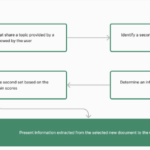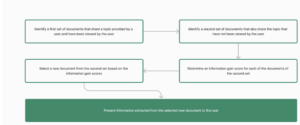You know the feeling. You Google yourself or your business and cringe at the unflattering search results. Negative reviews, outdated biographies, compromising photos – your online reputation is not what you want it to be. Don’t panic. You can take back control of your reputation with some strategic SEO. Monitoring mentions, optimizing content, and managing reviews are just a few ways you can influence how you’re perceived online. This complete guide will walk you through the steps to clean up your reputation and look your best on the web. With some time and effort, you can overwrite those digital blemishes and put your best face forward. Say goodbye to reputation-damaging search results and hello to a stellar online persona.
Understanding SEO Reputation Management
If you want to control how people perceive your brand online, you need to get familiar with SEO reputation management. This involves actively monitoring what’s being said about you across the web and taking steps to influence those opinions.
Keep an Eye on Online Mentions
The first step is setting up alerts to monitor when your brand is mentioned on sites like social media, news outlets, forums, and review platforms. That way you can address any negative reviews or misinformation right away before it hurts your reputation. Respond to people promptly and professionally to resolve issues.
Focus on High-Quality Content
Develop optimized content like blog posts, social media updates, and press releases highlighting the great things about your company. Post this content regularly to boost your visibility in search engines and push down any negative results. Engage with your followers and share the content on all your social profiles.
Optimize Your Online Profiles
Make sure profiles on sites like LinkedIn, Facebook, and Google My Business are up to date and showcase your brand in the best light. Encourage happy customers to leave reviews on these profiles and major review sites. Respond to all reviews, positive or negative, to build trust.
Have a Crisis Plan
Be prepared for events that could damage your reputation like data breaches, lawsuits, or PR crises. Have a plan to respond quickly and transparently to address people’s concerns, take responsibility if needed, and work to rebuild trust. In severe cases, you may need to get legal counsel involved to resolve issues of defamation or slander.
SEO reputation management does require work, but by taking a proactive stance in controlling what people find when they search for you online, you can maintain a reputation you’re proud of. Keep putting in the effort to monitor, optimize, and safeguard your brand, and your reputation will stay solid for years to come.
Key Components of an Effective SEO Reputation Management Strategy
Monitoring:
You need to regularly check what people are saying about your brand online. Set up alerts for your company name, product names, executives, etc. so you know right away if anything negative pops up. Monitor review sites, social media, forums, news media, and anywhere else your customers and clients might mention you. The sooner you know about a reputation issue, the faster you can address it.
Content Creation:
Developing quality content about your brand, products, services, and team helps strengthen your online reputation. Blog posts, press releases, social media updates, and other content gives you more opportunities to rank for relevant keywords in search engines. The more positive content you have, the more it can push irrelevant or negative info down in the search results. Focus your content on the topics and keywords that matter most to your reputation and brand identity.
Search Engine Optimization:
Use SEO best practices like keyword optimization, internal linking, and earning high-quality backlinks to rank your positive content higher in search results. The higher your content ranks, the more it will be seen by people searching for information about your company. SEO also helps suppress less relevant or negative content in the SERPs by outranking it.
Social Media Management:
An active social media presence gives you direct access to your audience and the ability to address issues quickly. Engage with your followers, post updates and promotions as well as relevant industry news and advice. Be responsive to all comments and feedback, especially complaints. The way you handle both praise and criticism on social media directly impacts your reputation.
Crisis Management:
Have a crisis management plan in place in case a reputation-damaging event occurs. Respond promptly and transparently, take responsibility if needed, apologize sincerely, and take visible actions to remedy the situation. How a company responds to a crisis can make or break its reputation, so preparation and fast action are critical.
With the right strategies and tools in place, you can gain better control over your online reputation. Consistent monitoring, optimized content, social engagement, and crisis planning help ensure your brand is portrayed accurately and positively across the web.
Using Content and SEO to Influence Your Online Reputation
To proactively build and manage your online reputation, focus on creating helpful content and optimizing it for search engines. Blog Posts and Long-Form Content Regularly publishing blog posts, articles, and other long-form content is key. Write about topics that showcase your expertise and helpfulness. For example, if you’re a business consultant, publish tactical advice for your target clients. If you’re a doctor, educate readers about common health issues.
Optimize these content pieces for important keywords by including them in your page titles, headers, and body copy. Also, interlink between your content pieces where relevant. The more high-quality, optimized content you have, the more likely search engines are to rank your site highly for important terms.
Social Media
Social media is another opportunity to build your reputation by engaging your audience and sharing helpful updates. Post regularly on platforms where your target audience spends time, like LinkedIn for professionals or Instagram for consumer brands. Respond to all comments and messages promptly and professionally.
Online Reviews
Don’t forget review sites like Yelp, Healthgrades, and Google My Business. Politely ask happy customers to leave a review describing their positive experience. Respond thoughtfully to any negative reviews, take responsibility for mistakes, and outline how you’ll improve. Your professional, caring responses can turn unhappy customers into loyal ones and improve your overall reputation.
Focusing on helpful, optimized content and thoughtful social media and review engagement is the foundation for effective reputation management. While you can’t control everything said about you online, you can work to build a strong, positive reputation that withstands challenges. With time and consistency, your efforts will pay off as search engines and your audience recognize you as an authoritative, trustworthy source.
Managing Social Media and Reviews to Protect Your Reputation
Responding to Social Media Mentions
Social media platforms like Facebook, Twitter, and Instagram provide an opportunity for people to discuss your brand, for better or worse. Monitor discussions around your brand regularly to address any negative or inaccurate mentions promptly. Respond professionally and helpfully, not defensively. Thank customers for positive mentions and engage with them. Building connections and goodwill on social media can help establish your brand as reputable and customer-centric.
Managing Online Reviews
Reviews on sites like Yelp or Google My Business are read by potential customers looking to gauge your brand. Encourage happy clients to leave reviews discussing their positive experiences. For negative reviews, respond respectfully by apologizing, taking responsibility (if warranted), and explaining how you will make things right and improve going forward. Your handling of negative reviews demonstrates your brand’s values to future clients. With consistent quality service, positive reviews will eventually outweigh and push down negative ones in search rankings.
Crisis Management Planning
Despite best efforts, reputational crises can arise, often unexpectedly. Have a plan in place to handle events like data breaches, lawsuits, or PR nightmares. Designate a crisis management team to respond quickly and transparently. Release an authentic, compassionate statement taking responsibility and outlining solutions and next steps. Be available to answer media and customer questions. The way a brand navigates a crisis can make or break its reputation, so crisis plans are vital to reputation management.
With diligent monitoring, active review and social management, and crisis planning, you can protect your online reputation. Building a reputation as a brand that provides quality products/services, treats customers well, and operates with integrity will establish goodwill that sustains your business through any challenges that may emerge. Consistency and accountability are key.
Recovering From a Reputational Crisis Through SEO Reputation Management
Respond Quickly and Transparently
In a crisis, time is of the essence. Respond promptly to address concerns and provide accurate information about the situation. Be open, honest and take responsibility for any mistakes. Apologize sincerely if needed. Your prompt and transparent response can help contain the damage before rumors and speculation spread.
Focus on Listening and Engagement
Actively engage with your audience during a crisis. Monitor social media and online discussions to identify concerns. Respond to questions and comments, and address feedback. Explain how you will make things right and prevent similar issues going forward. Listening to stakeholders and engaging with empathy and care can help rebuild trust in your brand.
Optimize and Promote Positive Content
Double down on your SEO reputation management efforts. Create and optimize new blog posts, press releases and social media updates highlighting the positive steps you are taking. Build internal links to this content from your website and promote it on social media. This helps boost the ranking of positive, relevant information in search results.
Review and Improve
Once the crisis has passed, review how it was handled and look for ways to improve. Analyze what worked and what didn’t in your response to identify opportunities for strengthening crisis communications and reputation management processes. Update policies and procedures as needed. Continuous learning and improvement help build a more resilient brand.
Recovering from a reputational crisis requires a strategic approach focused on transparency, engagement, and actively managing your online presence. While the situation may seem dire, staying focused on these key areas can help limit the damage, rebuild trust, and come out the other side with your reputation and brand equity largely intact. With time and consistency, people will move on from the crisis, and search results will also improve as positive and fresh content outranks outdated negative information.
Conclusion
So there you have it – SEO reputation management in 2024 involves being vigilant, strategic, and proactive. Monitor what’s being said, respond appropriately, and shape the narrative through high-quality content. With some time and effort, you can influence how you’re perceived online. Just stay persistent and don’t get discouraged. Handled right, your online reputation can become a valuable asset that helps you connect with the right people and opportunities. Now get out there and take control of your brand story! You got this.



















